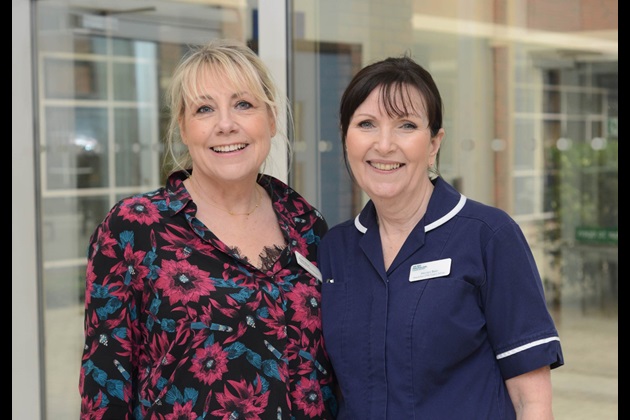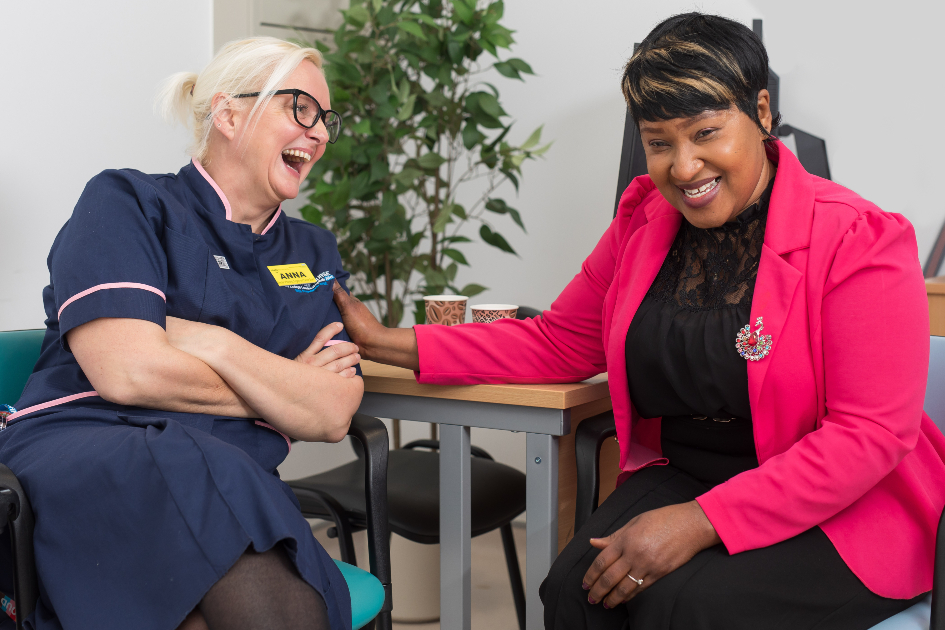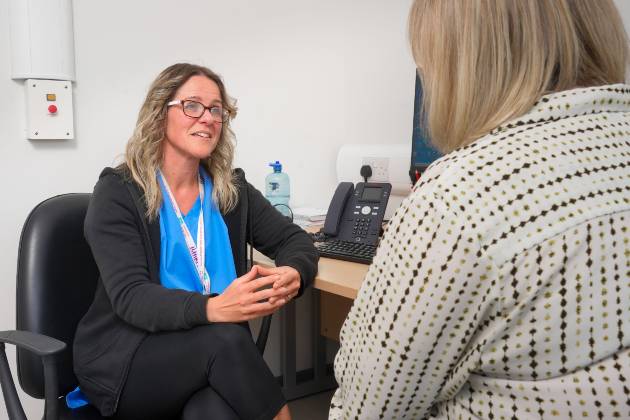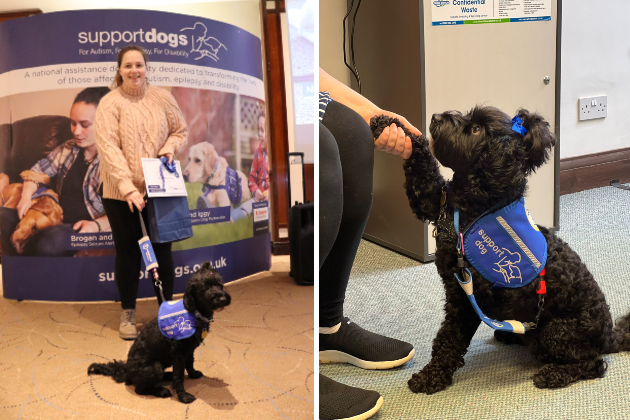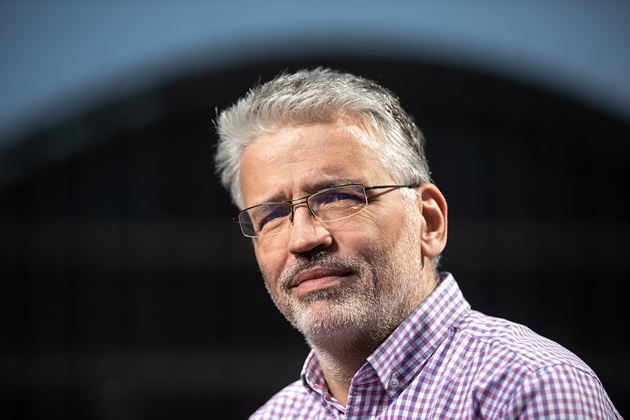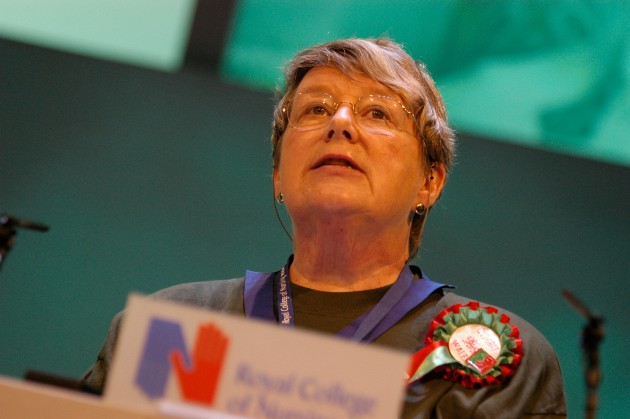A programme led by nursing staff is empowering patients to prepare emotionally and physically for cancer surgery and life beyond
Surgery can be a frightening prospect, especially if it follows a cancer diagnosis. But nursing staff at St George’s Hospital in London have found a way to support and empower patients having an operation to influence their own recovery.
Everyone undergoing cancer-related surgery at St George’s is invited to a Get Set 4 Surgery session, also known as surgery school. The pilot programme, funded by Macmillan Cancer Support and spearheaded by nursing staff, helps people to prepare for surgery practically, physically and emotionally.
It also readies them, as far as possible, for the challenges they may face afterwards.
“Many people who find themselves in this position feel disempowered,” explains RCN member Katie Bluer, project lead for the programme.
This can be the time when patients feel most anxious. We're able to support them and give them the information they need
“They feel like it’s all happening to them and they have little control. Often when a person is diagnosed with cancer, a lot of things happen quickly – referrals and tests – and then, if surgery is part of their treatment plan, they’re given a surgery date and go home.
“There’s a sense of just waiting for surgery. This can be the time when patients can feel most anxious and with surgery school we’re able to support them and give them the information they need."
She adds: “This is an umbrella to weather that storm and help people get through that situation.”
Surgery school is based on the principles of pre-habilitation and is delivered separately from pre-operative assessment in a group setting. Those attending can bring a family member or friend to support them if they choose.
Knowing what to expect
Since the surgery school pilot began in March 2018, more than 300 patients and 150 friends and family members have attended. The two-and-a-half hour session offers patients the chance to learn more about their hospital stay and how to improve their health prior to surgery.
It covers topics such as the benefits of good nutrition, increasing activity, smoking cessation and managing anxiety. Prehabilitation not only gives patients a better experience in hospital but encourages active participation in the patient’s own overall wellbeing.
People are often more likely to make lifestyle changes when they are given information by a health care professional working in that area
The group is also told about pain management and shown simple breathing activities. Participants have the chance to ask questions during the session or, if they want more privacy, in the break.
Katie says: “We’ve learnt that people are often more likely to make lifestyle changes when they are given information by a health care professional working in that area.
The project has brought together members of different teams including nursing staff, surgeons, anaesthetists, physiotherapists and dieticians, as well as specialists from St George’s cancer psychological support service. Each section of the session is delivered by the relevant health care professional.
Pre-habilitation is not a new concept. Its main aim is to reduce the risk of complications and improve patient outcomes by preparing people physically for major surgery – in other words, getting them as fit as possible beforehand.
At St George’s, however, because the programme is cancer-specific, the session gives equal weight to preparing people emotionally, both for surgery and the longer term challenges of their illness.
We take a holistic approach to let people take the lead in their own recovery
The session also explores the positive, often small, changes people can make to improve their health and mental wellbeing – before surgery, during their immediate recovery and later on.
Katie says: “We take a holistic approach to let people take the lead in their own recovery, showing them what they can do and what support is available.
“We need to get them involved in their own care and empower them to take responsibility. Supporting people to take an active part in their recovery, and to not feel helpless, is invaluable to their wellbeing,” she adds.
Making people feel secure
Although the programme is measuring patient experience and behavioural changes from the patient’s perspective, nursing staff have commented on a noticeable difference on the wards too.
Cancer nurse specialist Marion Beer, who works on the project two days a week, has been told by many nursing colleagues that they can tell who’s been to surgery school.
“We’re finding patients are feeling more confident in knowing what to do for themselves and for their own recovery,” she explains.
“As soon as patients have been assessed as ‘safe’ by the ward nurse, they can be as independent in their recovery as possible. One nurse recently told me that on a morning shift they went into the bay and three patients were already out of bed and heading to the shower. They’d all been to surgery school and knew what to do.”
We’re finding patients are feeling more confident in knowing what to do for themselves and for their own recovery
Those patients were well aware of the benefits of getting up and moving around after their surgery – it reduces the risk of blood clots, muscle wastage and infection. But they were also taking control of their own recovery.
As well as teaching patients, surgery school, which has an open-door policy for staff, is giving clinicians a change to enhance or refresh their cancer caring skills.
A lot of clinical nurse specialists also join the session if their patients are attending to support them and to answer specific questions in the break.
Changing expectations
Sessions are weekly but the project team often faces logistical issues in making sure all patients can attend. Some patients might only have a short period between the decision to operate and the operation taking place.
“We weren’t sure how beneficial it would be for patients having their surgery relatively quickly,” says Katie. “But we’ve found that even just to go through the practicalities of coming into hospital is helpful for people.
“We can help demystify concerns about anaesthesia, pain relief and catheters. We may not be able to influence their pre-operative physical health as much but the psychological preparation is really beneficial.”
Patients can meet the people who will be involved in their care and that makes them feel much happier, less anxious and reassured
In fact, feedback has shown that the majority of patients attending surgery school have reported feeling less anxious about their surgery. Marion thinks this is largely down to changing people’s expectations of coming into hospital.
“Coming to surgery school ahead of their operation makes people feel more secure,” she says. “It’s an opportunity for patients to meet the people who will be involved in their care when they're in hospital and that makes them feel much happier, less anxious and reassured.
“We also make sure that everyone who attends knows they should have a cancer nurse specialist assigned to them. If they don’t know who that is already then we find out.”
Katie adds: “These days, people aren’t in hospital for very long so having a cancer nurse specialist, or having it pointed out that there is one available, gives patients the confidence that they can get in touch when they need to, especially post-surgery.
“Being in a room with people in the same position as you and having the opportunity to ask questions can also be reassuring.
“Getting people through their operation is the key but if someone also has a cancer diagnosis, it can be one of the most traumatic parts of their life, so feeling like you’re not alone and having a cancer nurse specialist there to know all those little things makes such a big difference.”
Keeping patients at the centre
The idea for St George’s surgery school was conceived when patients at a listening event said that they’d like more information about surgery before coming into hospital. They also wanted to know what they could do to help themselves.
Katie says patients were involved throughout the development of the programme, and their feedback is used to adapt and improve the sessions.
“If you keep patients at the centre, it simplifies it,” she says. “With everything we’ve done, we’ve asked ourselves ‘Does this impact positively on patients?’ and that has always been the driver.”
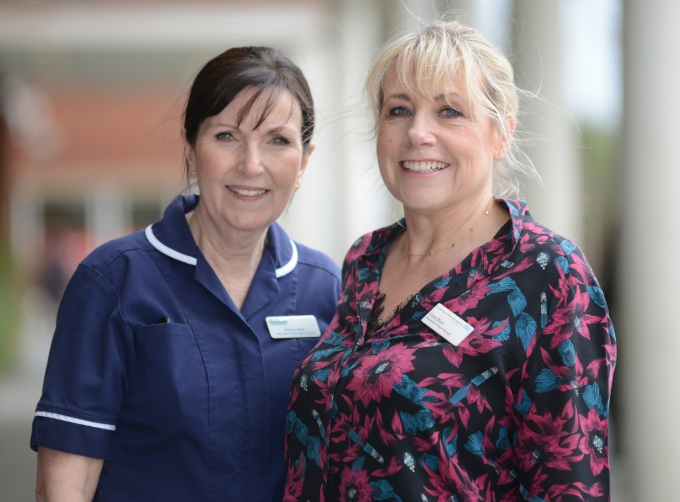 Marion (left) and Katie
Marion (left) and Katie
For Marion, the positive impact is clear in the feedback she’s received.
“Some of it has been quite profound and it shows how surgery school is helping people to cope,” says Marion. “Cancer is still, for many patients, considered ‘The Big C’ but we’re talking about recovery and looking to the future. I think hope is a really important thing people take away from this.”
Patient perspective
Katherine says nursing staff had a powerful impact in reassuring her ahead of major surgery...
“When I first heard about surgery school, I thought it sounded like a good idea for someone like me who’d never had any type of procedure, let alone major abdominal surgery for bowel cancer. I went with an open mind, thinking it would be helpful, but it completely surpassed my expectations and provided so much reassurance.
“The fact it focused specifically on cancer and was nurse-led was brilliant. The nurses were so approachable and during the break more came along so everyone had a chance to ask questions if they wanted to. It was lovely to see Claire, my own wonderful cancer nurse specialist, there too.
“I was quite nervous about having a catheter inserted and I asked if it would be painful. I was told that in this case it would be done under general anaesthetic so I wouldn’t feel it. It was only a small worry compared with the actual surgery but after surgery school, it was one less thing to worry about.
“On the day of my surgery, I felt like I knew exactly what to expect. The most helpful thing I remember was being told not to be stoical. They said we must tell someone if we were in pain because people recover more quickly when pain is controlled. If I hadn’t heard that advice, I might have been tempted to think the pain was just to be expected.”
April is Bowel Cancer Awareness Month. Bowel cancer is the fourth most common cancer in the UK and almost 42,000 people are diagnosed with it every year.
For more information, visit Bowel Cancer UK.


